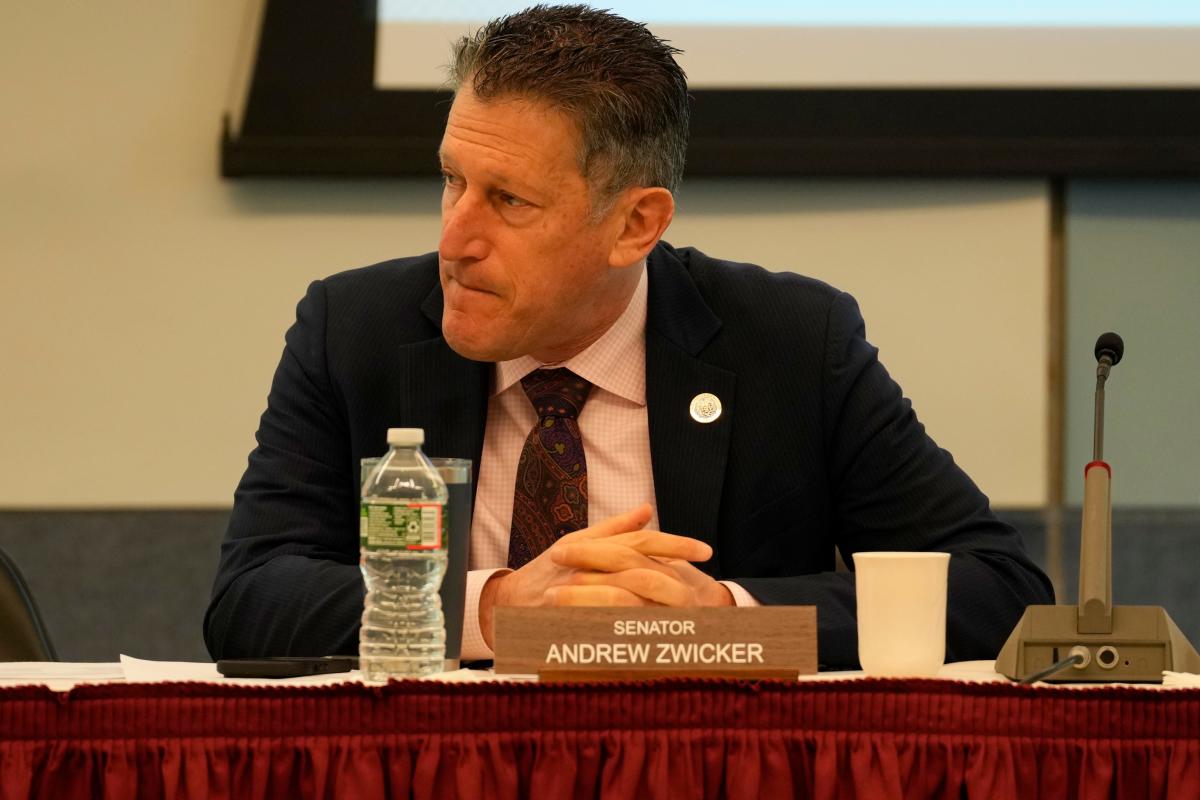New Jersey legislators peppered the state’s top transportation leaders with questions about NJ Transit’s budget problems, a controversial project to widen the New Jersey Turnpike, questionable decisions over tolls during this year’s budget hearings and how pedestrian fatalities are being addressed.
These hearings are held annually in the months after the governor announces his budget priorities in February and before the state spending plan has to be approved July 1.
Here is how NJ Transit CEO and President Kevin Corbett and Francis O’Connor, acting commissioner for the Department of Transportation, handled more than five hours of questioning over two days in both legislative chambers. O’Connor has only been on the job for two months and answered questions about a number of issues and controversies that predated his time at DOT.
NJ Transit budget problems
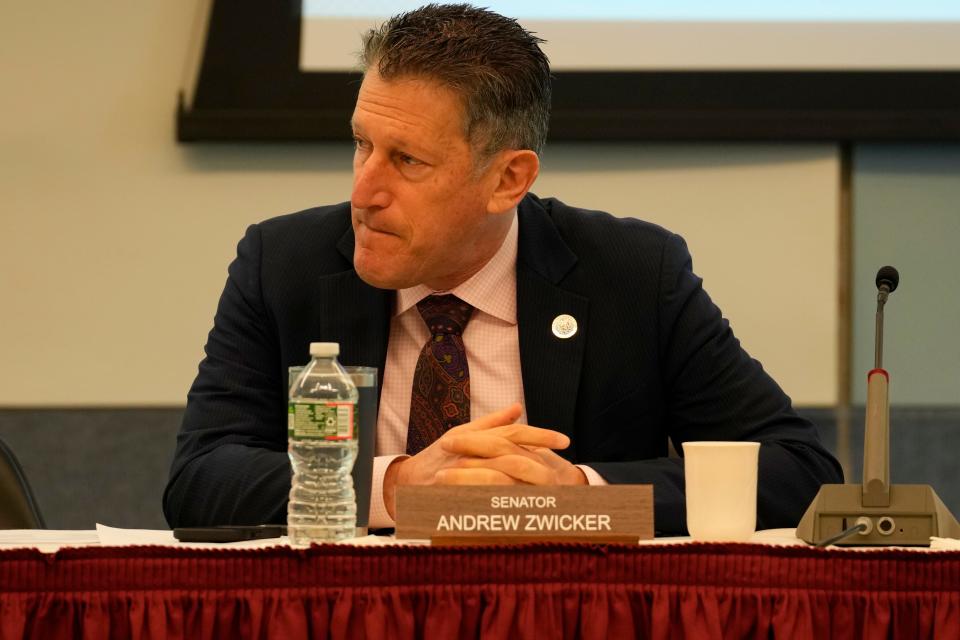
NJ Transit’s budget crisis, spending practices and recent decisions to plug its deficits, namely the controversial decision to raise NJ Transit’s fares 15% this July and institute an annual 3% increase after that, were among the most-discussed topics.
Sen. Andrew Zwicker, D-Somerset, questioned why the agency moved ahead with fare increases instead of waiting to see how the state budget negotiations played out, especially since Gov. Phil Murphy proposed a new corporate transportation tax that could plug NJ Transit’s most immediate deficit and largely fill the gap anticipated in fiscal year 2026.
“I have a fiduciary responsibility, effective July 1 I have to make payroll,” Corbett said. “We have notice we have to give to unions so many days in advance, if I’m going to be laying people off — there’s a whole process.”
Asked by multiple legislators what the outcome will be if the new corporate tax is not passed, Corbett said it will impact the agency’s ability to expand, plan long-term projects and improve service with new equipment.
“A lot of our projects are long lead-time capital projects, equipment purchases,” Corbett said.
“I’d like to look at expanding service more for South Jersey or wherever, we touched on Hudson-Bergen Light Rail,” Corbett said, mentioning the light rail system that has never reached Bergen County because of a lack of financial commitment from the state. “Those are all billion-dollar price-tag tickets that take years but benefit the economy for decades. But that takes real money.”
Story continues after video
Absent additional state aid, draconian measures could be lurking since the Murphy administration asked the state DOT to hire a consultant to identify 20% reductions in NJ Transit’s operating budget, or $600 million. The analysis will also develop strategies and recommendations to “meet needs, including service, cost and alternatives,” according to a request for proposals.
O’Conner offered little detail about the status of that work, except to say that it started in January. He didn’t elaborate when asked about the scope of the contract, whose details remain largely unknown. The contract has yet to be produced more than two months after NorthJersey.com filed a public information request for it.
Corbett added that the point of the study is twofold.
“If we don’t get funding that’s the doomsday scenario, but they’re also looking at what are other best practices,” Corbett said, likening the study to a “independent appraisal.”
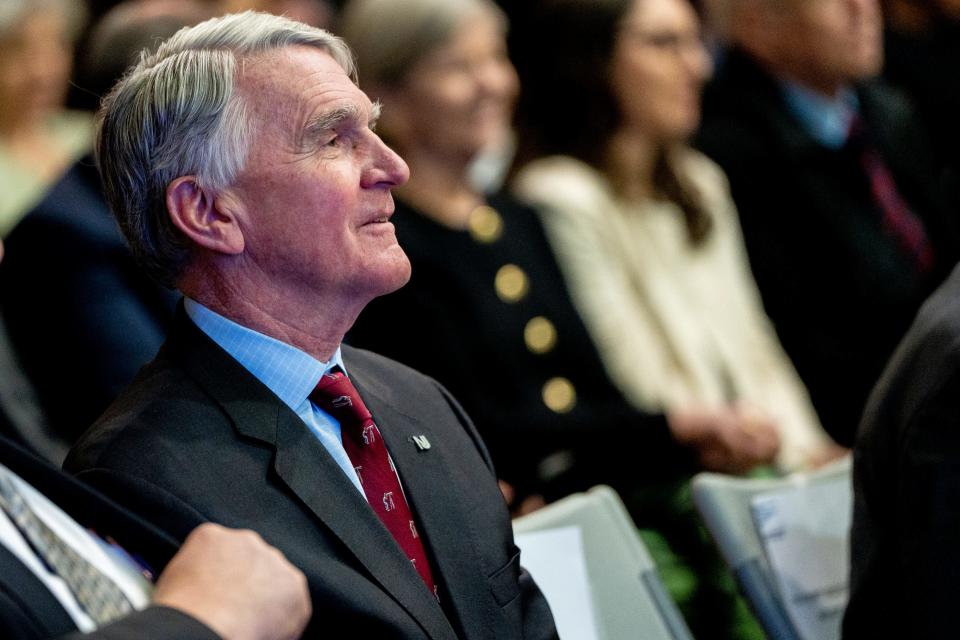

Assemblyman Brian Rumpf, R-Ocean, peppered Corbett with questions about the disputed decision to move the agency’s headquarters to the most expensive option presented by NJ Transit’s hired real estate consultant Savills, which highlighted cheaper spaces or staying at their current building. To fix up their current headquarters in Newark, which the agency owns, it would cost $58 million in “base building replacements” — repairs like updating elevators, HVAC and heating systems.
Corbett reiterated that using capital dollars to renovate their building instead of on other needs didn’t make sense. Yet the agency is spending $20 million from their capital budget to fix up the new headquarters space, also in Newark, plus $34 million from the operating budget, a total of $54 million that has grown from the original $40 million estimate.
Corbett acknowledged they didn’t go with the lowest bid when deciding on the location, but said they chose a site that could “accommodate our needs” and that in competitions like this “there’s going to be one winner and several losers.”
The building chosen, 2 Gateway, is owned by political donors of Murphy who were in touch with transit officials more than a year before the request for bids was issued about moving the headquarters to Gateway, seeking information about board rooms space and other specs, according to emails and documents obtained by NorthJersey.com.
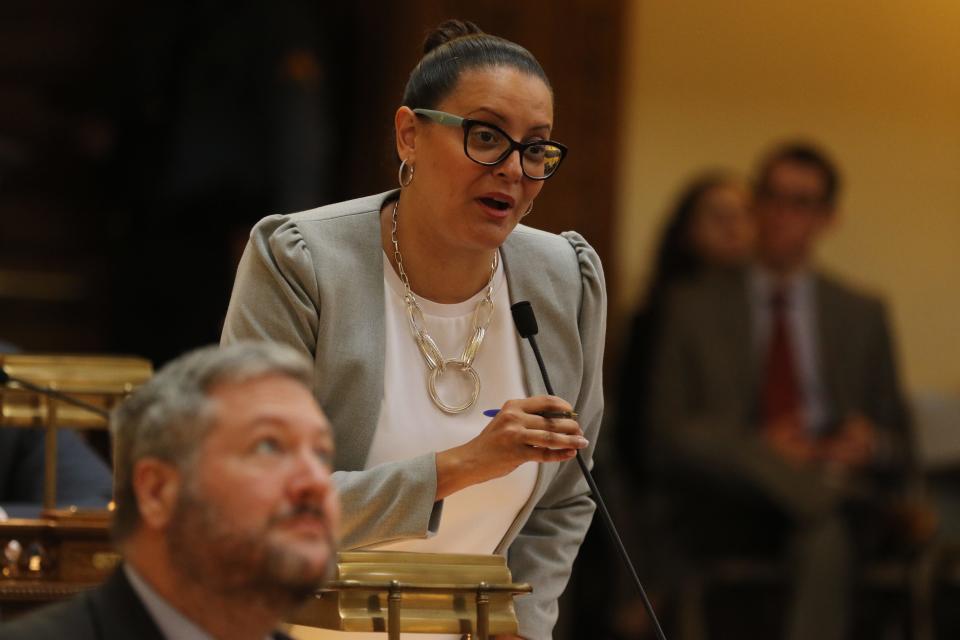

Eliana Pintor Marin, D-Essex, the Assembly budget chair, voiced skepticism about NJ Transit’s overall fiscal future.
“None of us are saying that the CBT is the answer to this, I think you’re still going to have issues, the CBT is a very volatile tax,” Pintor Marin said, referring to the corporate transportation tax. “My concern is it’s not going to reach the level we all think it might reach and then you’re going to have still a problem year-to-year for the next couple of years.”
Pedestrian fatalities
Multiple legislators wanted to know what is being done to make pedestrian and cyclist safety a priority on New Jersey roads given the rapid increase in vehicle strikes over the last few years.
Zwicker shared a personal story about a friend who died in September after being struck by a vehicle while she rode her bike on Route 571 in Millstone.
Assemblywoman Verlina Reynolds-Jackson, D-Mercer, said there have been four deaths on Route 129 so far this year, already exceeding the three deaths reported on that road in total last year.
O’Connor’s response — repeated when other legislators brought up this topic — was that “one thing we can’t control is driver behavior,” and that DOT is trying to increase education and outreach about road safety.
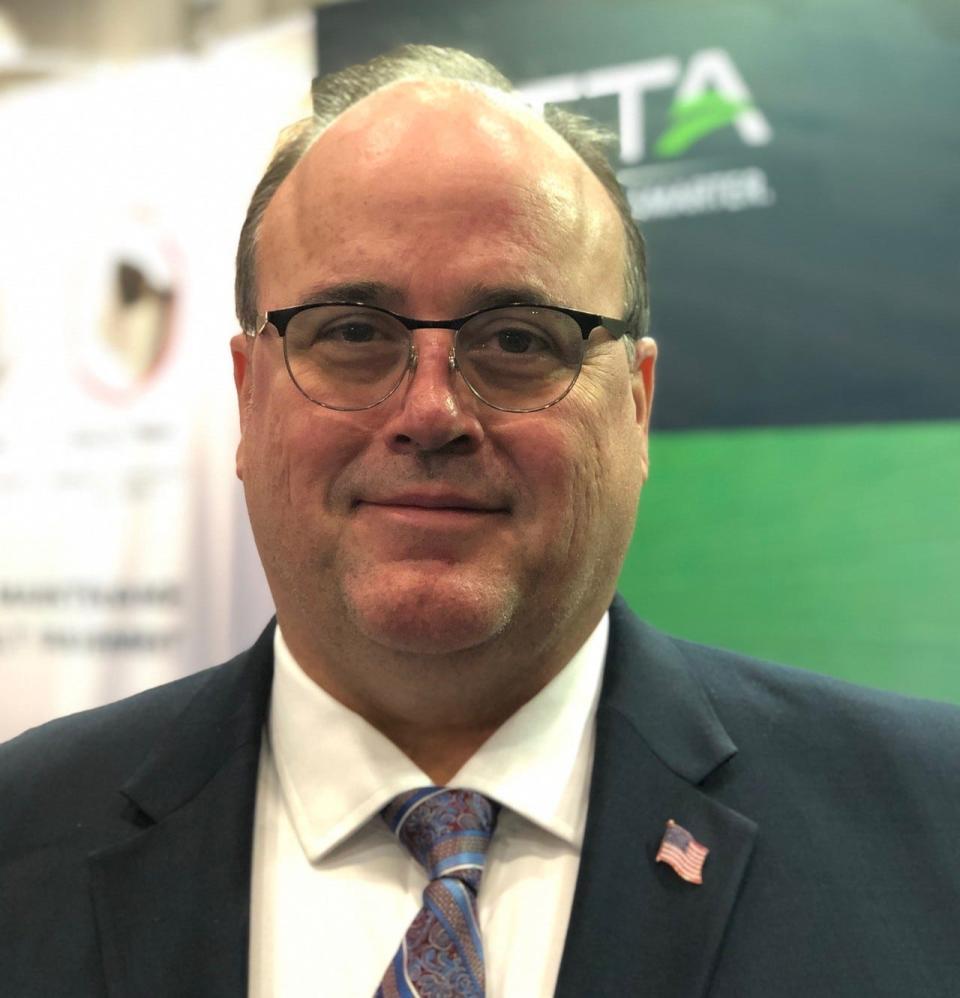

“How do we get them to slow down? How do we get them to obey? We are looking at ways to try to protect the pedestrians and the bicycles and the paths and we will continue to do that and we will continue to do our outreach on that,” O’Connor said, noting a friend of his died in a fatal vehicle crash on Route 1 recently.
There was no mention that the state is prioritizing traffic-calming improvements, the internationally proven approach that uses myriad strategies to reduce driver speeds and improve safety, including street and landscape design.
He did not mention Hoboken or Jersey City, which have invested in these techniques and drastically reduced pedestrian fatalities. Hoboken hasn’t had a pedestrian or cyclist death in seven years.
O’Connor also didn’t mention Vision Zero, an international initiative to eliminate all traffic fatalities. A bill that would have created the first state Vision Zero framework in the country — including creating a high-injury network database to identify zones where pedestrians and cyclists are most at risk — was pulled from a final voting session in January after outcry.
The version that was to be voted on had been amended in a way that “gutted most of the teeth” out of a bill that began as a national example, activists said.
New Jersey Turnpike highway widening
The controversial plan to widen the New Jersey Turnpike in Jersey City near the entrance to the Holland Tunnel for $10.7 billion did not go unnoticed during the hearings.
Assemblywoman Ellen Park, D-Bergen, asked O’Connor whether the highway widening would lead to “more cars on the road due to the expansion?”
O’Connor, whose role as commissioner includes chairing the Turnpike Authority board, responded: “I don’t see an abundance of more cars going down with that.”
However, the environmental impact statement the Turnpike Authority released in November predicts the expansion could increase traffic by more than a third when compared to 2021 traffic figures. the Turnpike’s analysis and details were first revealed by Streetsblog.
The Turnpike expects 20,593 vehicles will travel on the expanded stretch of the highway during peak hours on a daily basis by 2050, a 32% increase from the 15,595 vehicles that traveled there in 2021. By comparison, if no expansion takes place, traffic is only expected to increase 8%.
Sen. Declan O’Scanlon, R-Monmouth, questioned how the costs for the project skyrocketed to $10.7 billion when initial estimates put the cost at $4.7 billion.
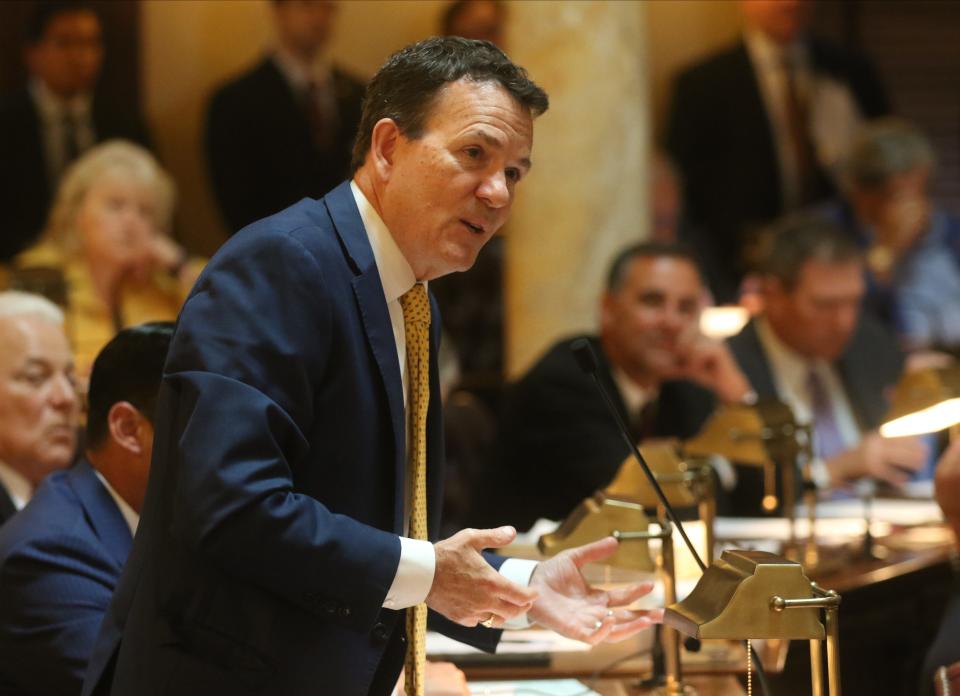

“I think the original estimate they used was based on old numbers,” O’Connor said, adding that he doesn’t think that mistake was repeated in other projects.
O’Scanlon said, “It seems like a hell of a lot of money to be spending on a very small, well significant and wide portion of roadway, but per vehicle mile, per roadway mile, seems like a pretty high number.”
In response, O’Connor explained that this section of highway is original, from the 1950s, and that building “an elevated highway over water and land is more expensive.”
Toll increases
Some legislators were interested in hearing more about what went into Murphy’s decision to veto an increase in Turnpike and Garden State Parkway tolls, weeks before the election and under political pressure to do so, only to reinstate them months later.
Assemblywoman Aura Dunn pushed O’Connor on why the governor wasn’t aware of this beforehand and wanting more “post-election rationale” for going ahead with the increase.
“The governor asked to go look back and make sure that index was needed and make sure … their books were in order in the sense of looking at the operations and all their spending,” O’Connor said. “The 3% funds their $1 billion capital program.”
What wasn’t mentioned is the Turnpike is raising more revenue than is needed to cover debt service for its capital program.
“Toll revenues need to grow by 1% annually in order to cover debt service, which is reasonable, especially considering 3% annual toll rate increases,” according to Fitch.
This article originally appeared on NorthJersey.com: NJ Transit fares, NJ Turnpike toll hikes questioned in Trenton
